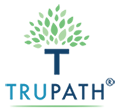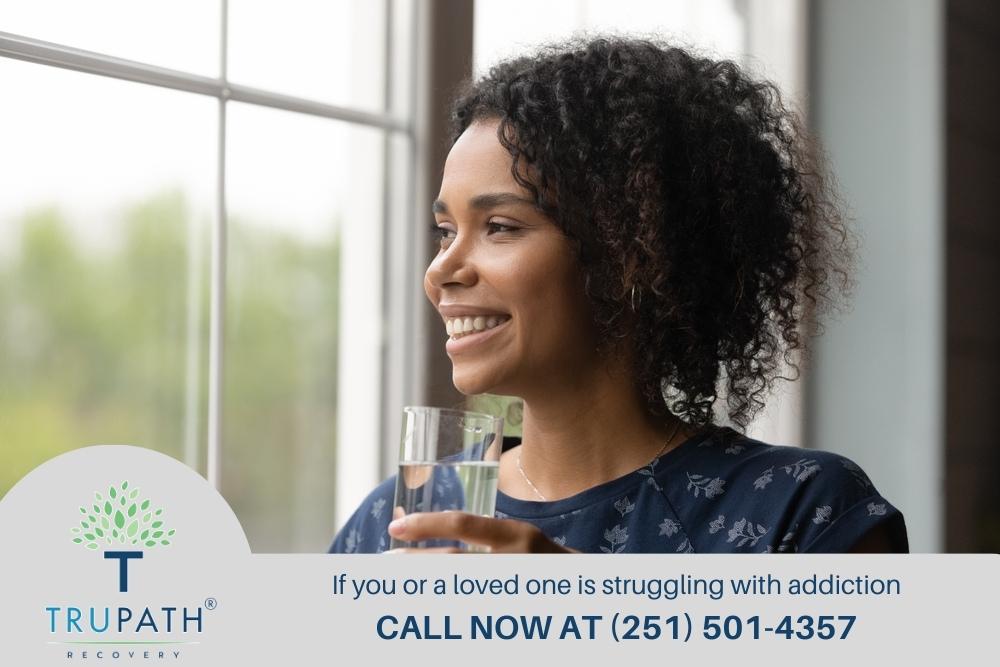When seeking help for addiction and substance use, finding the best rehab is an important step in the process. Finding the most effective addiction treatment program for you or your loved one can be daunting, but it is well worth the effort.
Taking the time to do adequate research and consult with professionals can make a huge difference in the success of your addiction treatment program. The right rehab can provide the support and guidance you need for a successful recovery.
What to Look for When Choosing a Rehab
There are several considerations people must make when choosing a rehab facility, including location, cost, program type, staff qualifications, and more. Determining the program details, like the types of therapies available and if the rehab focuses on evidence-based treatment options, is important.
The last step is ensuring the facility offers a safe and supportive environment. Ensuring the facility is clean and organized and that the staff is qualified and experienced is significant, and it is also important to ensure the rehab is licensed and accredited. If you are unsure where to start, you can speak to your doctor about finding an addiction treatment center.
Review the Facility’s Staff
Addiction treatment centers may have various staff positions. The level of care you need will determine the kinds of professionals you should see on staff in an addiction treatment center. At least one medical doctor should be on staff in medical detox, with other healthcare professionals available 24 hours daily. Lower levels of care will have clinicians, including psychologists, therapists, case managers, nutritionists, and others.
Review Facility Licenses
Several accreditation bodies regulate rehabilitation facilities, but two of the most prominent accrediting organizations are the Commission on Accreditation of Rehabilitation Facilities (CARF) and the Joint Commission, previously known as JCAHO. You can also check with your insurance carrier, which will have a list of preferred clinics it works with and may be able to answer questions about treatment center licenses and regulations.
Look at Online Reviews
Online reviews let you know if a facility has major red flags. Take online reviews of any product or service with a grain of salt and look at reviews from various sources. You should also look for a consensus among many reviews rather than focusing on a single good or bad review. Addiction treatment is challenging, which can cause people to feel negative about a treatment center. But if there are dozens of negative reviews of a facility, you should proceed cautiously.
Sometimes, the best way to get your questions answered is to go to a treatment center directly. If you have questions about drug rehab, call TruPath anytime or chat with us live.
Consider All Therapy Types
Addiction is a serious condition, and individuals who have the disorder require comprehensive treatment to overcome it. The type of therapy used in addiction treatment is an important factor that affects the success of the program and the individual. Many types of therapy are available for addiction treatment, each with its own unique benefits.
All these therapies are essential components of addiction treatment, and each kind offers unique benefits that can help individuals in recovery on their journey toward health and wellness. However, the best treatment plans are tailored to an individual’s needs with help and guidance from an addiction treatment therapist.
Evidenced-Based Therapy
Evidence-based addiction treatment relies on scientific research to determine what works best when treating addiction. It focuses on evidence-based interventions, such as cognitive behavioral therapy and motivational interviewing. These interventions help individuals change their behavior and cope with their addiction in a healthy way.
Effective treatment should have a foundation of evidence-based treatments. Alternative therapies can be useful, but they should be reserved as a supplement to evidence-based approaches.
Common evidence-based therapies include:
- Cognitive Behavioral Therapy (CBT) is one of the most commonly used forms of therapy in addiction treatment. This therapy helps individuals identify and replace negative behavior and thought patterns with healthier, more positive ones. It also helps people to identify and modify any triggers that may lead to relapse. CBT is often used in combination with other forms of therapy, such as psychotherapy and medication.
- Motivational Interviewing (MI) is a type of psychotherapy that helps individuals explore their motivations to make positive life changes. Through therapy, individuals gain insight into why they engage in addictive behaviors. The therapist helps to create an atmosphere of support and understanding and encourages individuals to explore the possibilities for change.
- Group Therapy is another type of therapy commonly used in addiction treatment. In this setting, individuals with similar issues can discuss their experiences and support one another as they work toward recovery. Group therapy may involve exploring topics such as relapse prevention, feelings of shame or guilt, and self-esteem. Group therapy can also be an effective way for individuals to learn from one another and process their emotions.
- Dialectical Behavioral Therapy (DBT) is a type of cognitive-behavioral therapy that focuses on changing how individuals react to difficult emotions. DBT teaches individuals how to accept and cope with difficult emotions in a healthy way. Through this type of therapy, individuals learn how to regulate their emotions, tolerate distress, and develop healthier behaviors.
- Family Therapy is an essential part of addiction treatment for many because it helps strengthen the relationships between individuals in recovery and their loved ones. This therapy helps family members understand the effects of addiction, develop better communication skills, and learn how to support one another in recovery.
Holistic Therapy
Holistic addiction treatment emphasizes the whole person to promote healing rather than simply treating the symptoms of addiction. This treatment approach considers the physical, mental, and spiritual aspects of a person’s life. It also emphasizes the importance of treating the entire person, not just the addiction.
Rather than relying solely on medications and talk therapy, holistic approaches to addiction treatment may include various alternative therapies such as yoga, meditation, acupuncture, and massage. These alternative therapies can help reduce stress and anxiety, increase relaxation, and provide a sense of overall well-being. They can also be used to help individuals develop healthy coping skills and manage triggers that could lead to a relapse.
Holistic addiction treatment also emphasizes nutrition and diet. Eating a healthy, balanced diet can help to reduce cravings and provide the body with the nutrients it needs to heal and stay healthy. This type of treatment also encourages individuals to get regular exercise to help improve mood, reduce stress, and improve overall health and well-being.
Examples of holistic alternative therapies include:
- Music therapy is one of the most widely used forms of addiction treatment. It can help to reduce stress and anxiety, increase relaxation, and improve mood. Music therapy can also help to increase motivation and focus and provide an outlet for self-expression. The treatment approach can be used in individual or group settings and tailored to each patient’s needs.
- Art therapy, another popular therapy for addiction, can help to reduce stress and anxiety, increase self-expression, and improve mental health. It fosters creativity and imagination and can provide an outlet for expressing difficult feelings. Art therapy can also help to improve communication and problem-solving skills.
- Equine therapy involves using horses to help people recover from addiction. Equine therapy provides physical exercise that can ease stress and anxiety. Additionally, it can improve communication, trust, and problem-solving skills.
Frequently Asked Questions (FAQs) About Drug Rehab
Drug rehab is a process that many individuals go through if they have a drug or alcohol addiction. The rehab process can be an intimidating and difficult journey, so it’s no surprise there are many frequently asked questions about it. Here are some of the most common questions about drug rehab to give you an idea of what to expect.
How Do I Choose a Recovery Program?
When selecting a recovery program, evaluating your needs and goals is important. Consider the support you need, what environment you would be comfortable in, and what treatment would best fit your lifestyle. On your first day in rehab, you’ll go through an assessment process with a therapist to map out a treatment plan tailored to your needs.
What Is the Average Rehab Age?
Addiction can affect people of any age. However, it often affects adults in their late teens and 20s at higher rates than other ages. According to the 2021 National Survey on Drug Use and Health (NSDUH), 8.4 million people who needed addiction treatment in 2021 were young adults aged 18 to 25. That number accounts for 25 percent of that age group in the United States. By comparison, 15 percent of adults over the age of 25 needed addiction treatment.
When Should I Start Rehab?
Addiction treatment has many barriers, including your readiness to change, fear of withdrawal, costs, transportation, and more. When you realize you need treatment, you should start as soon as possible. If you’re using illicit drugs, each dose is potentially life-threatening, especially if it’s adulterated with unknown substances. Starting rehab within 24 hours of your decision to go is ideal.
Sources
American Psychiatric Association. (2017, January). What Is Addiction? Retrieved https://www.psychiatry.org/patients-families/addiction/what-is-addiction
National Institute of Mental Health. (2018, July). Anxiety Disorders. Retrieved https://www.nimh.nih.gov/health/topics/anxiety-disorders/index.shtml
National Institute on Drug Abuse. (2018, July). Treatment and Recovery. Retrieved https://nida.nih.gov/publications/drugs-brains-behavior-science-addiction/treatment-recovery
SAMHSA. (2022, December). 2021 National Survey on Drug Use and Health. Retrieved April https://www.samhsa.gov/data/sites/default/files/reports/rpt39443/2021NSDUHFFRRev010323.pdf





